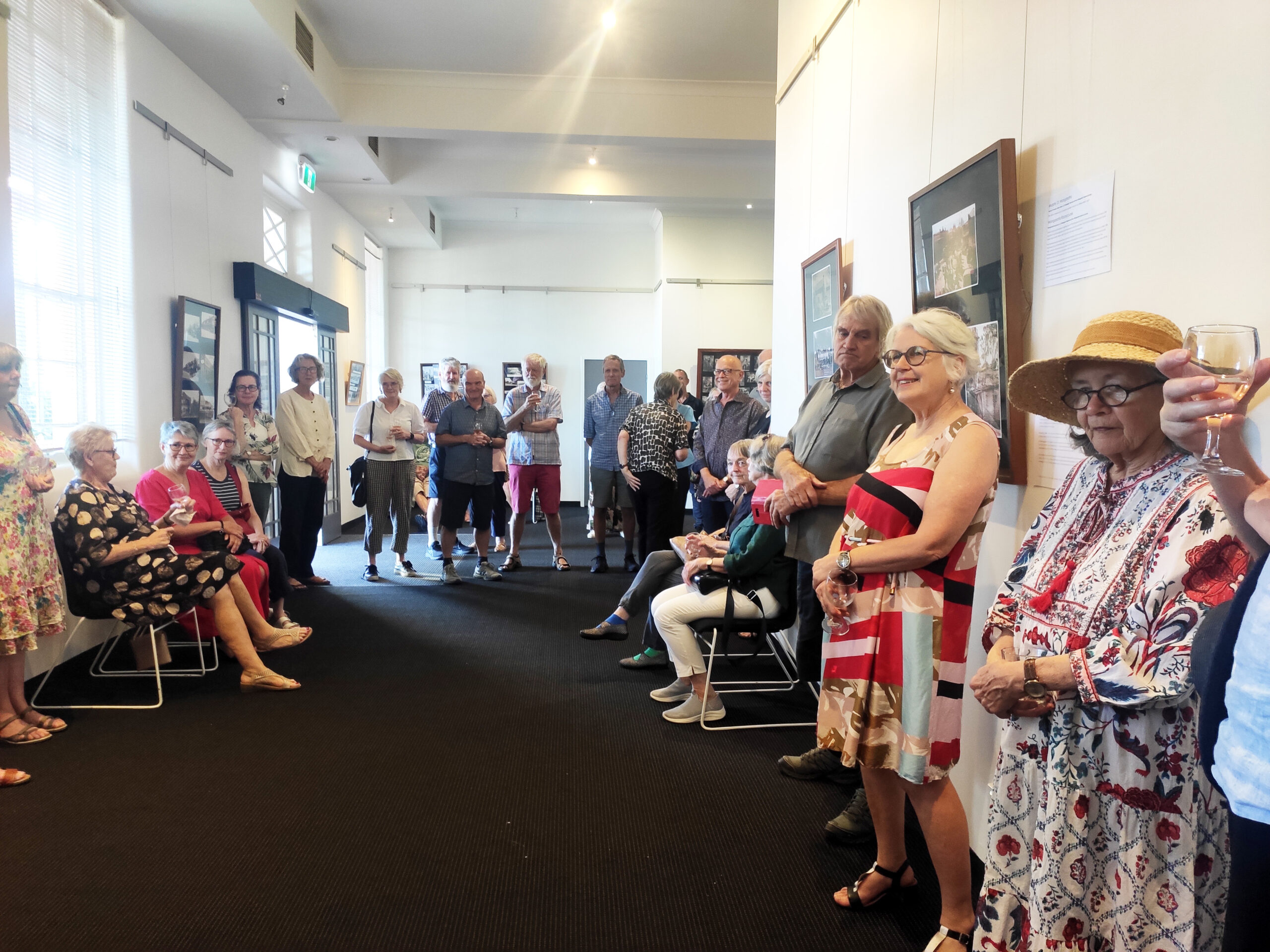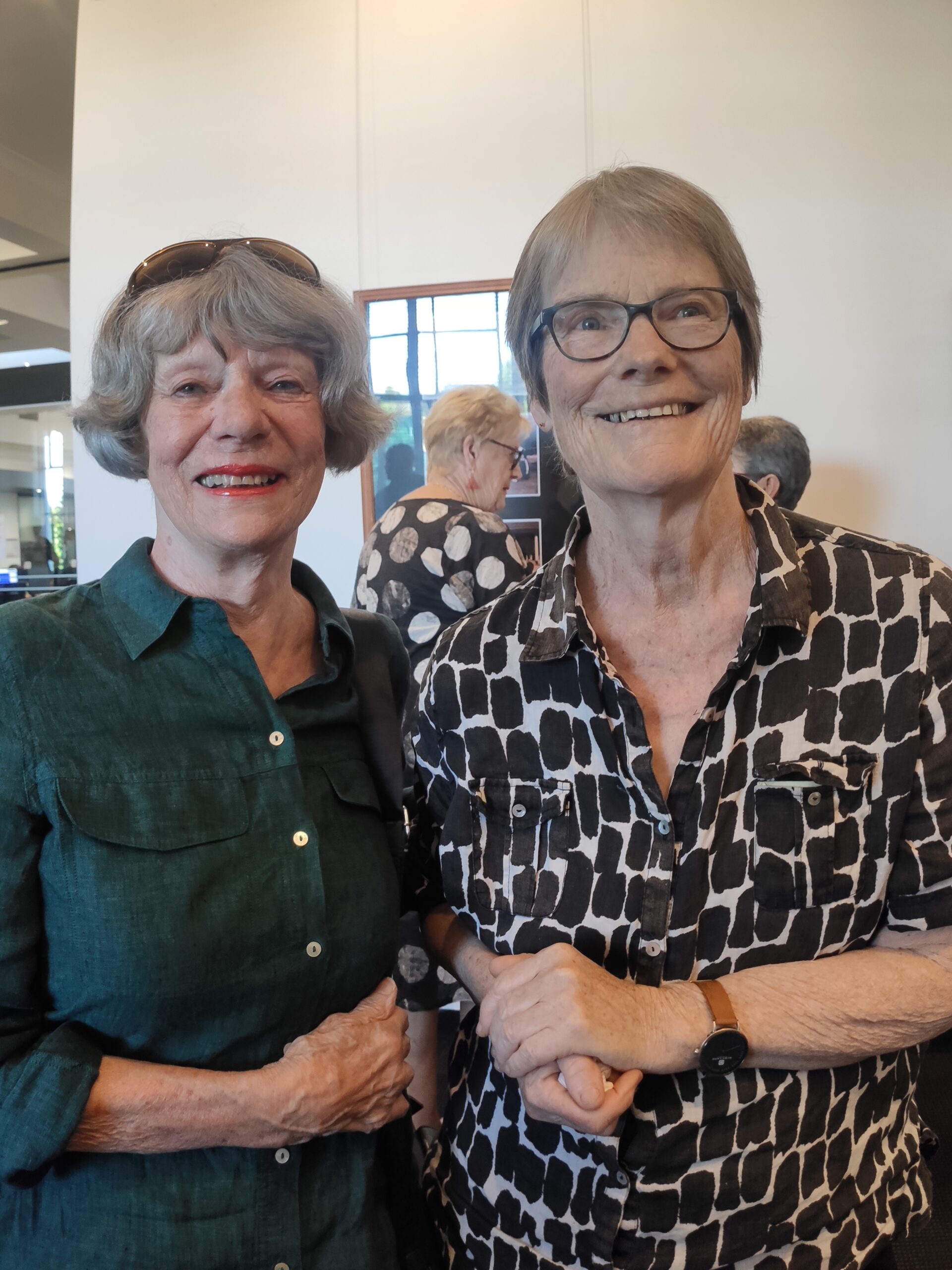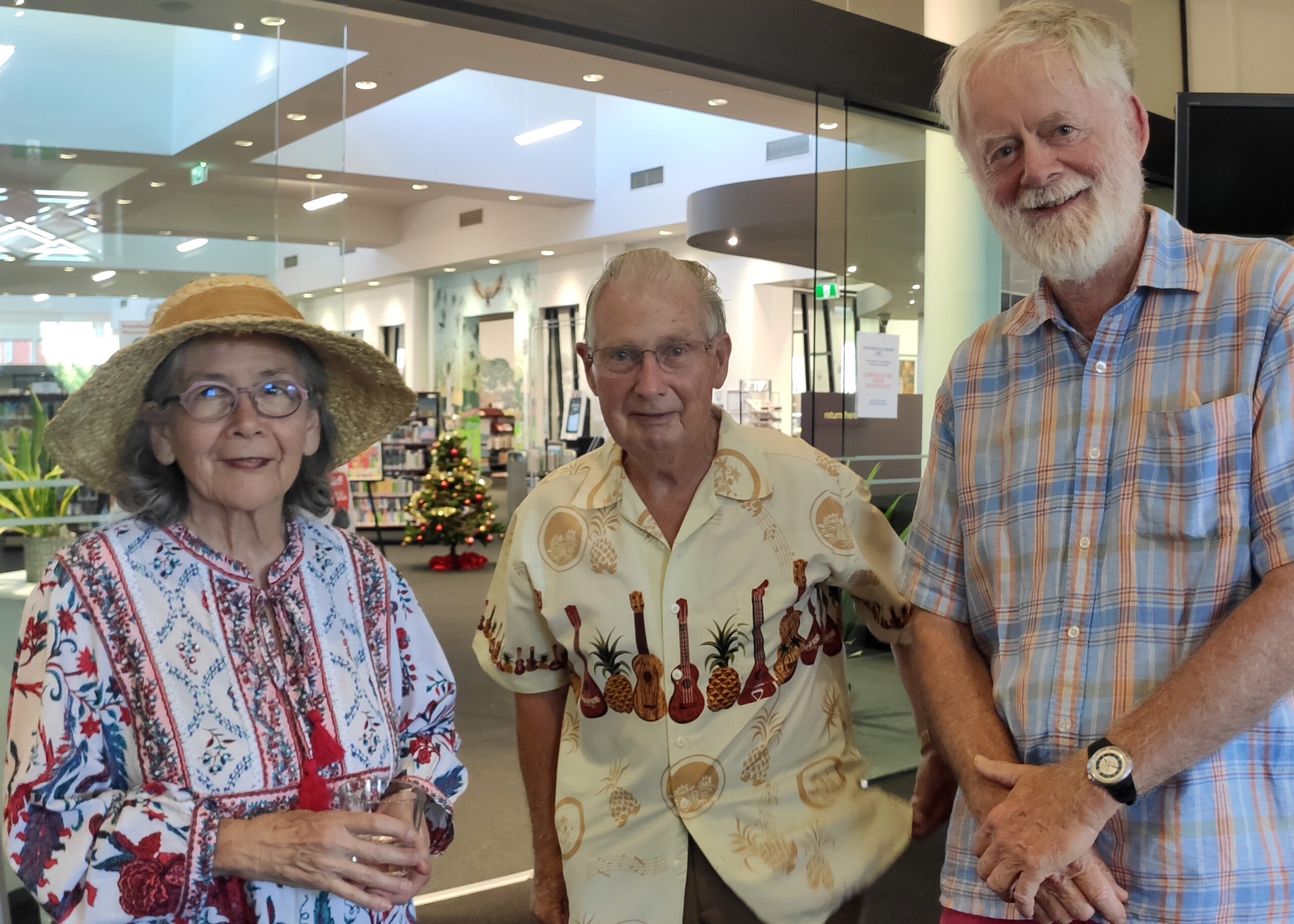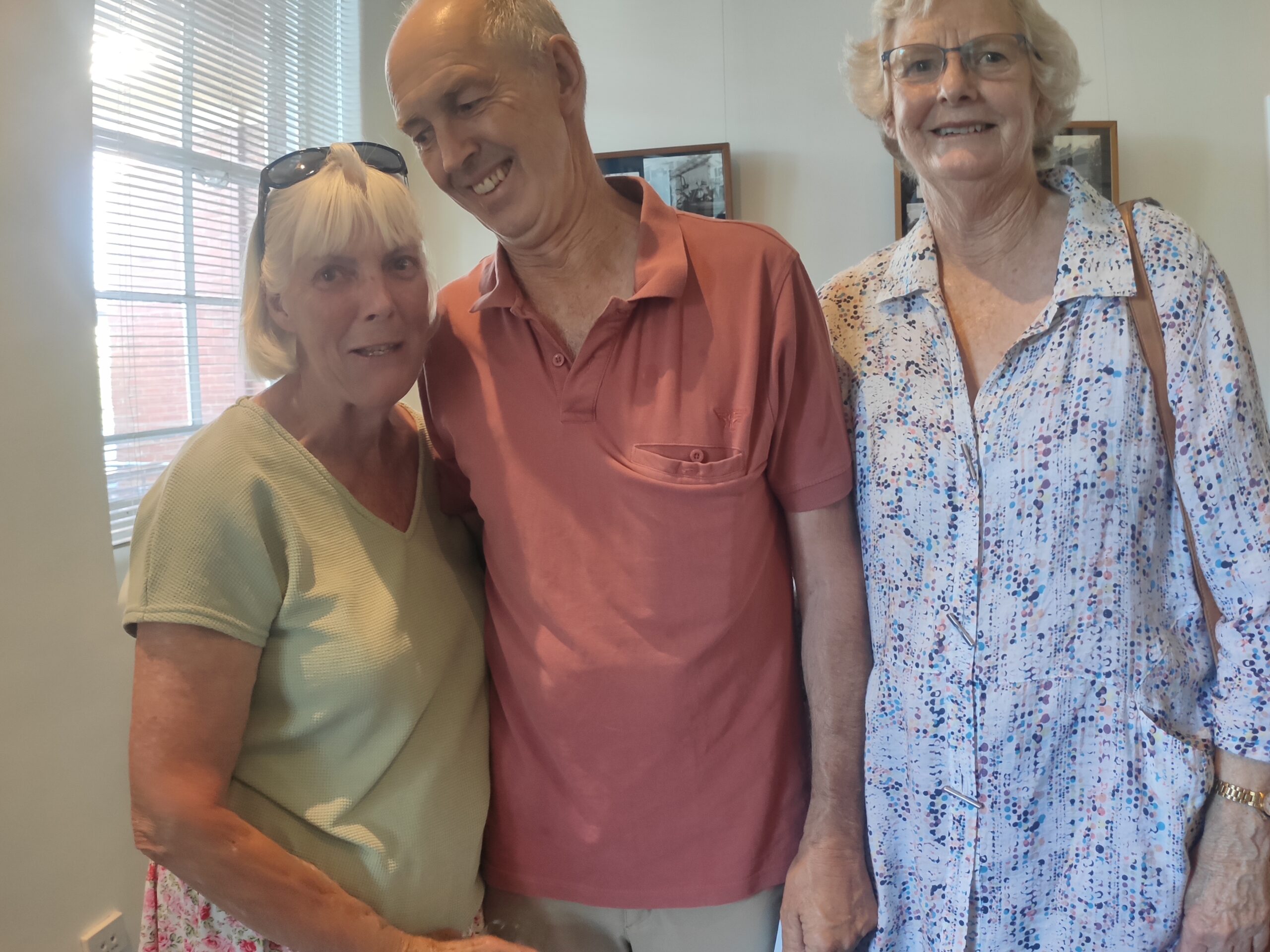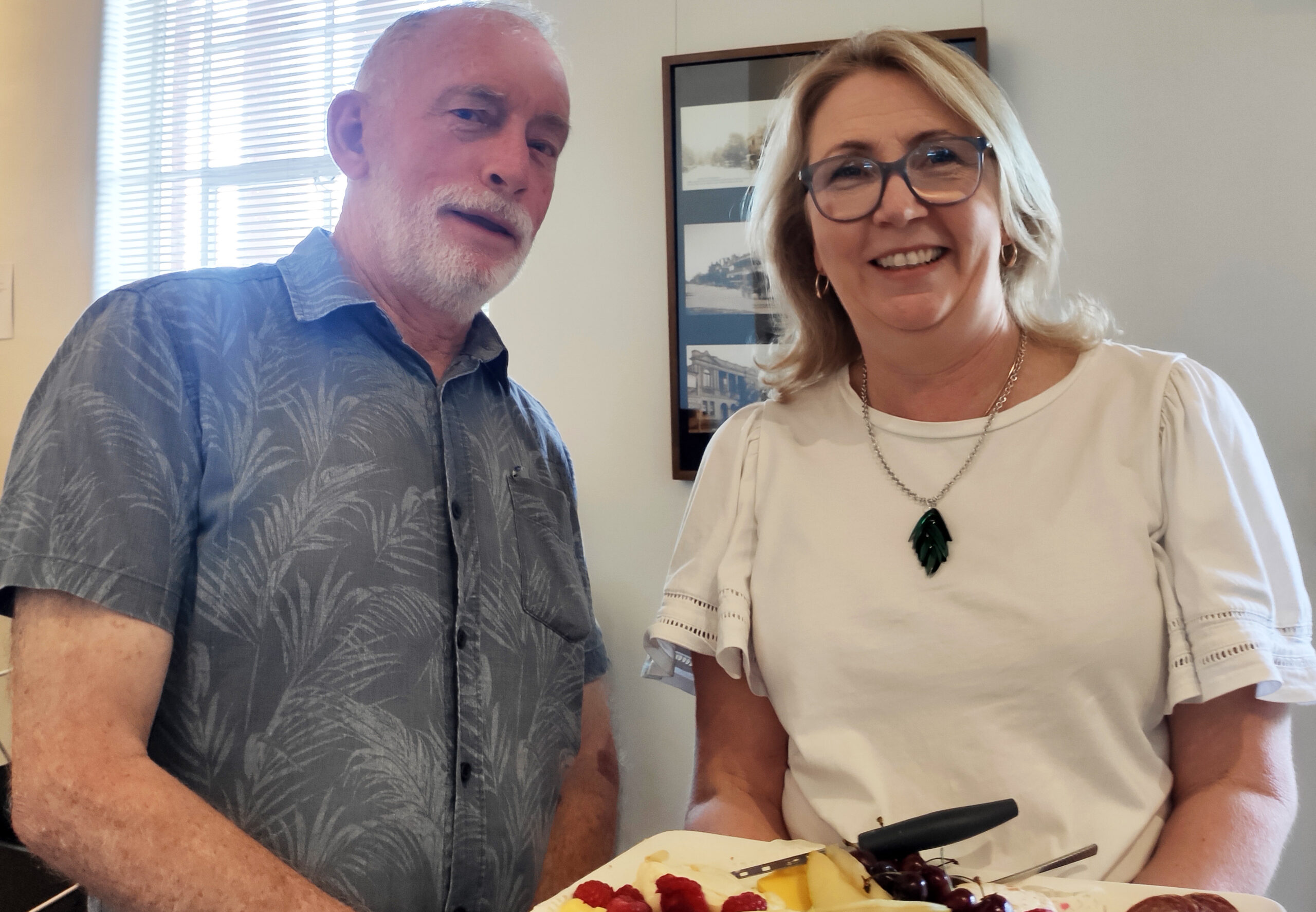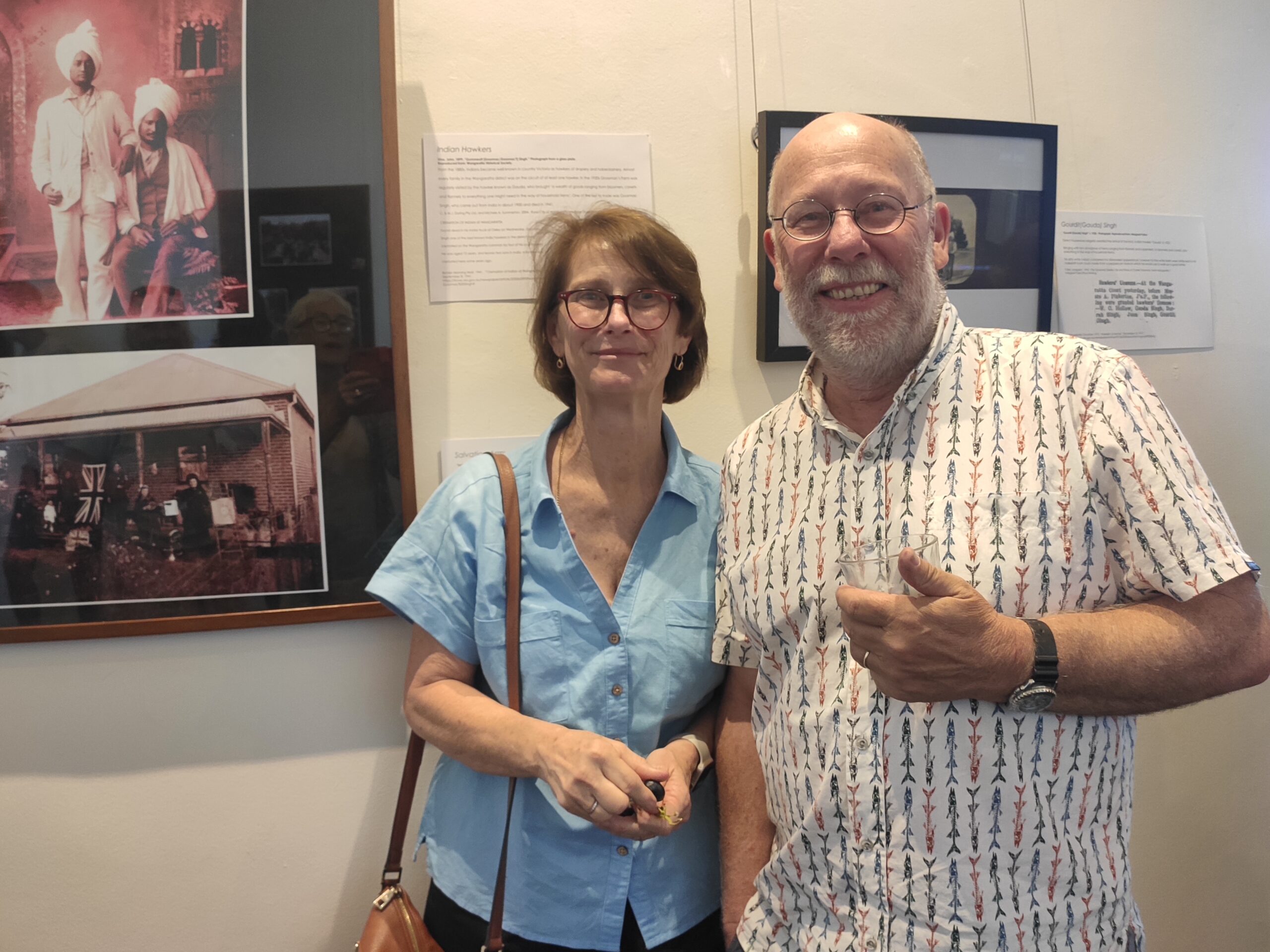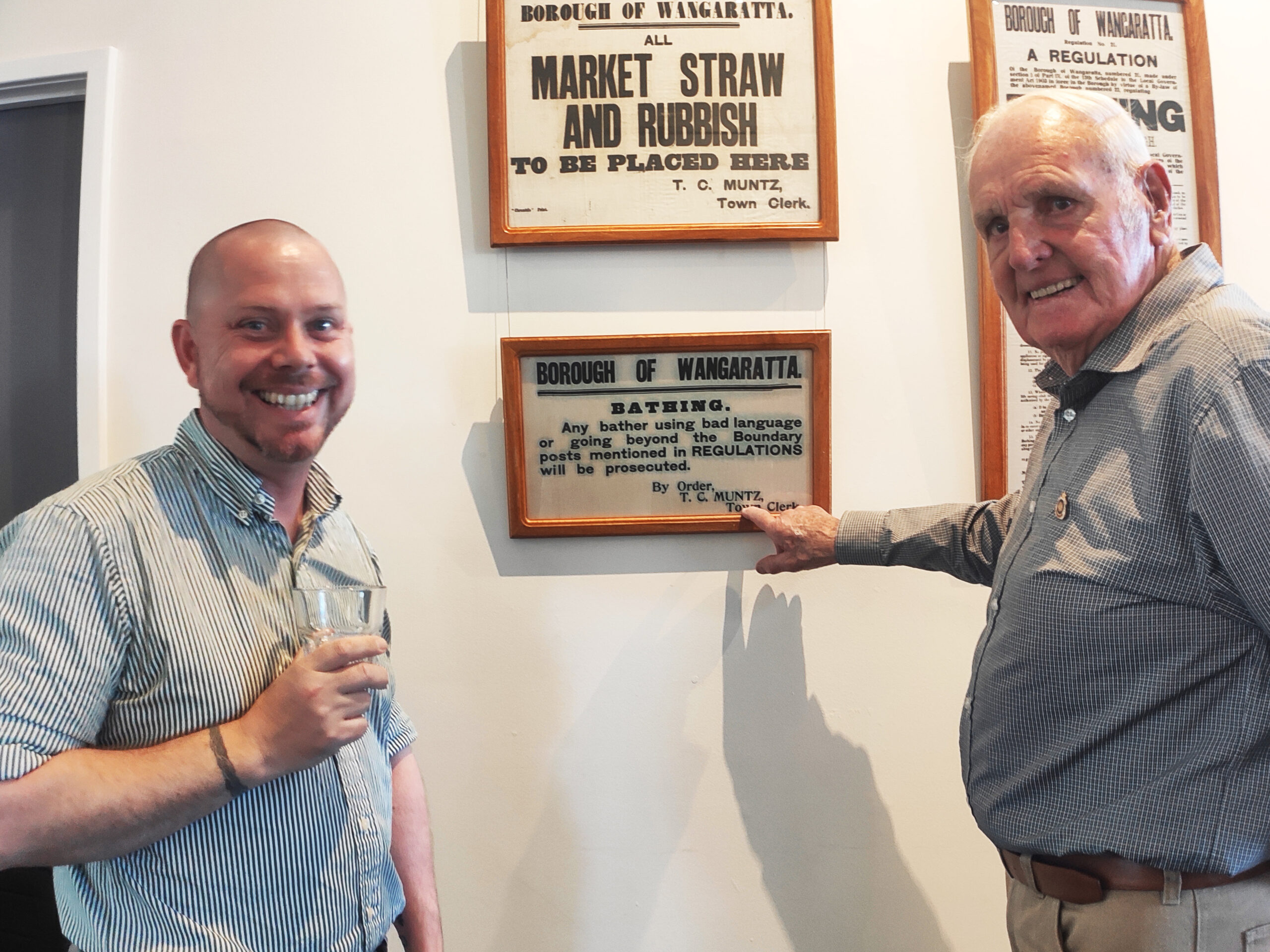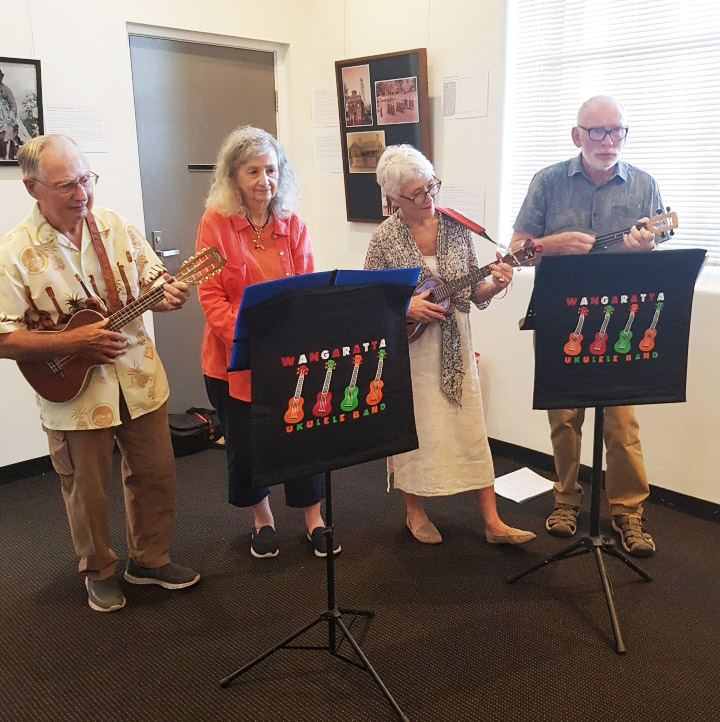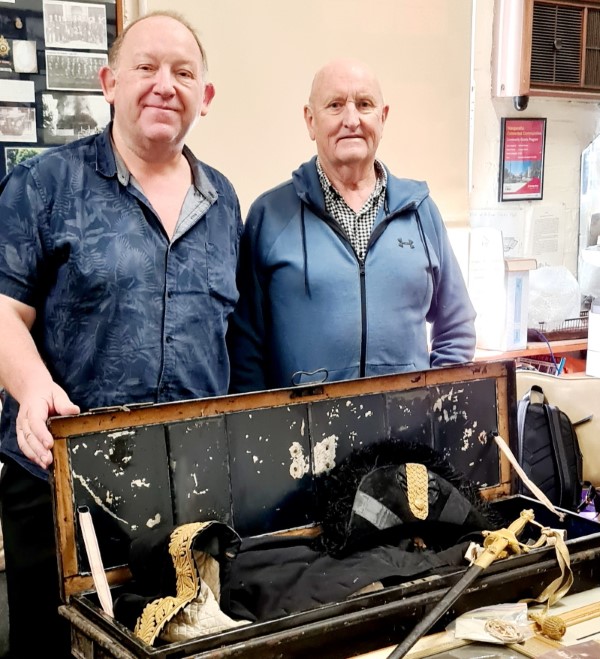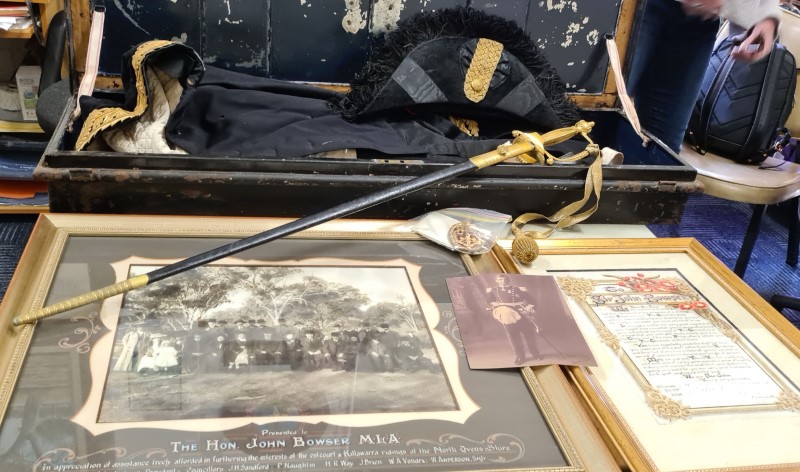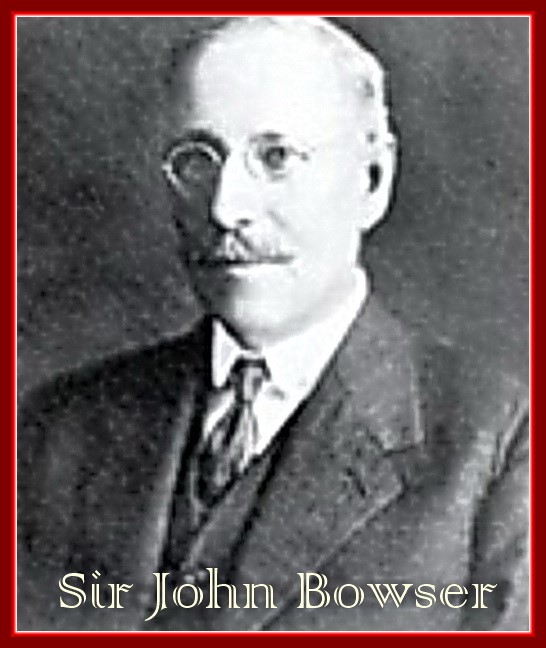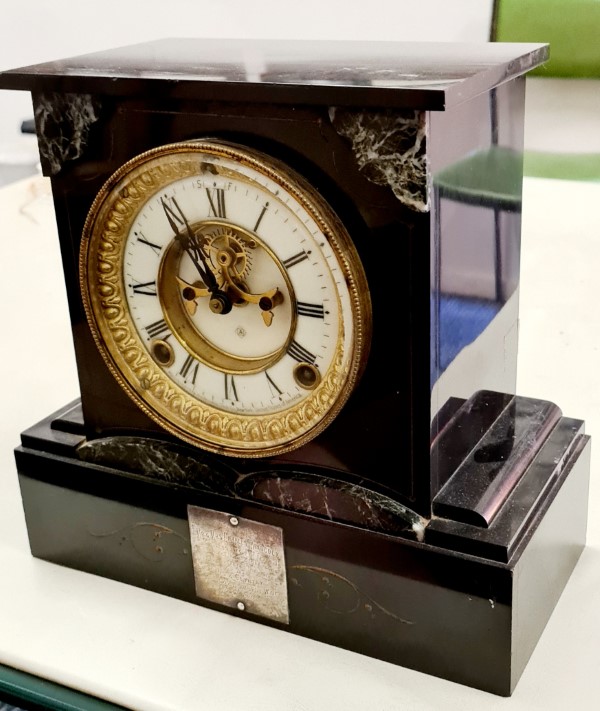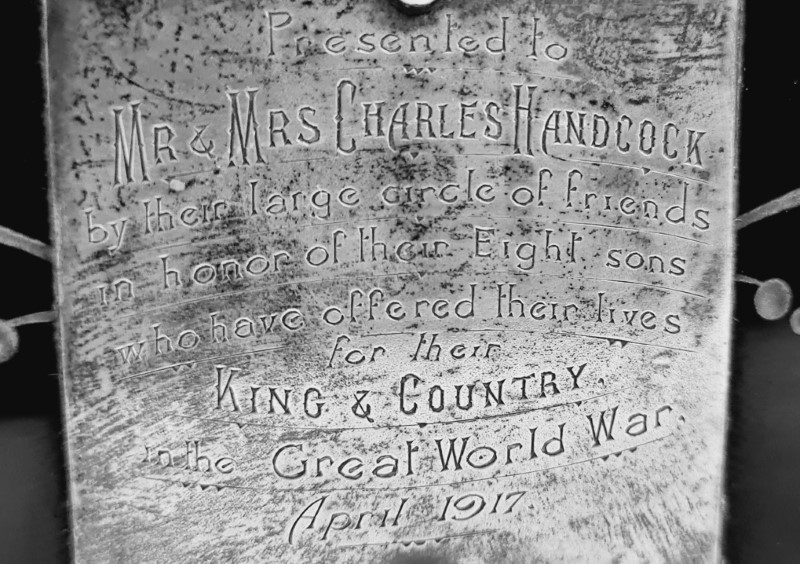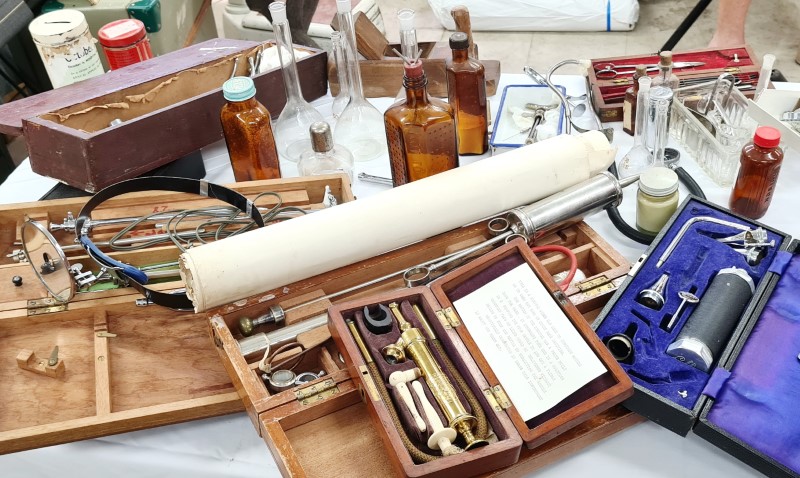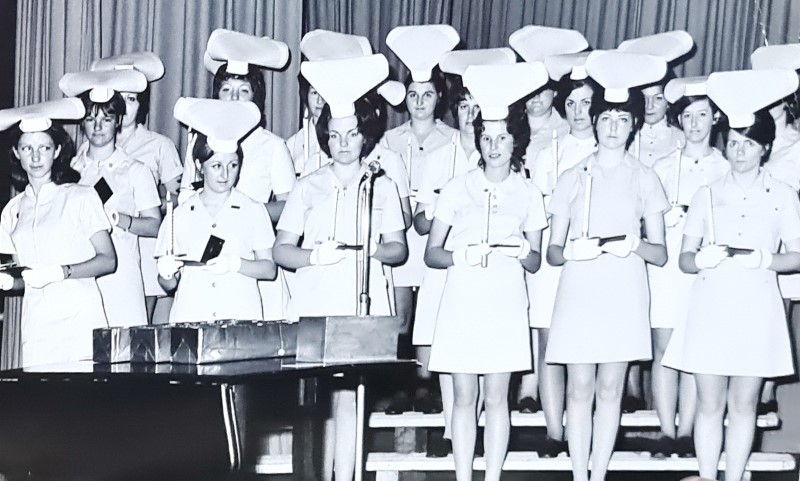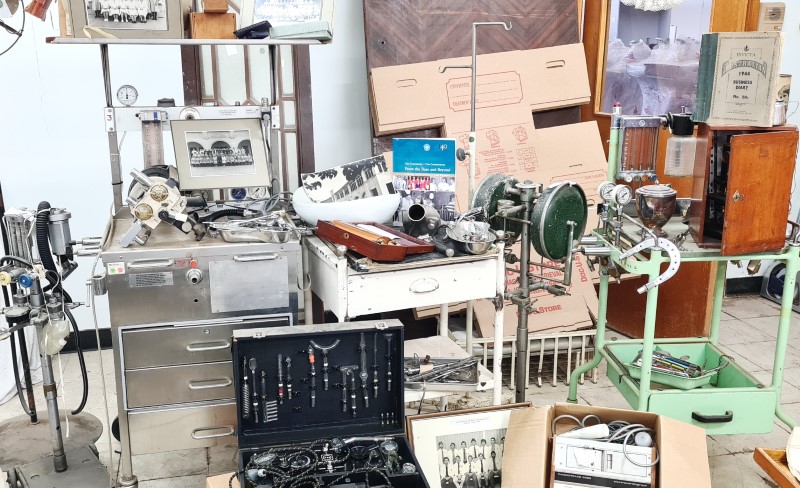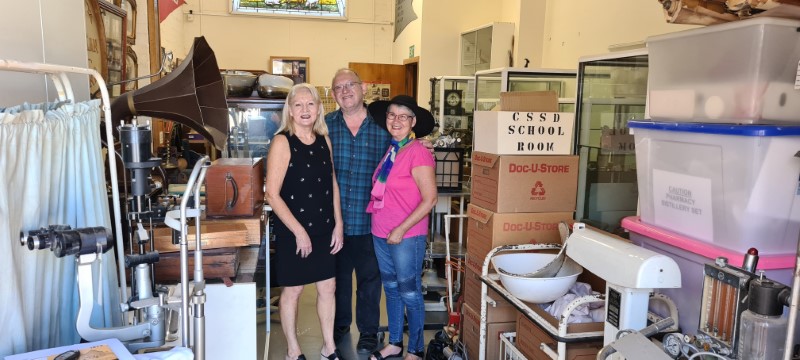Wangaratta 1920’s – An Optimistic Gaze has opened @ BAINZ.
A new WHS exhibition has opened at the Bainz Gallery in the Wangaratta Library. The exhibition is from the museum’s collection. It has been curated and displayed thanks to member support. A big thank you to Paddy Milne, Rhonda Diffey, Claire Russel, Geoff Dinning, Sandra Neville and Prue Noble.
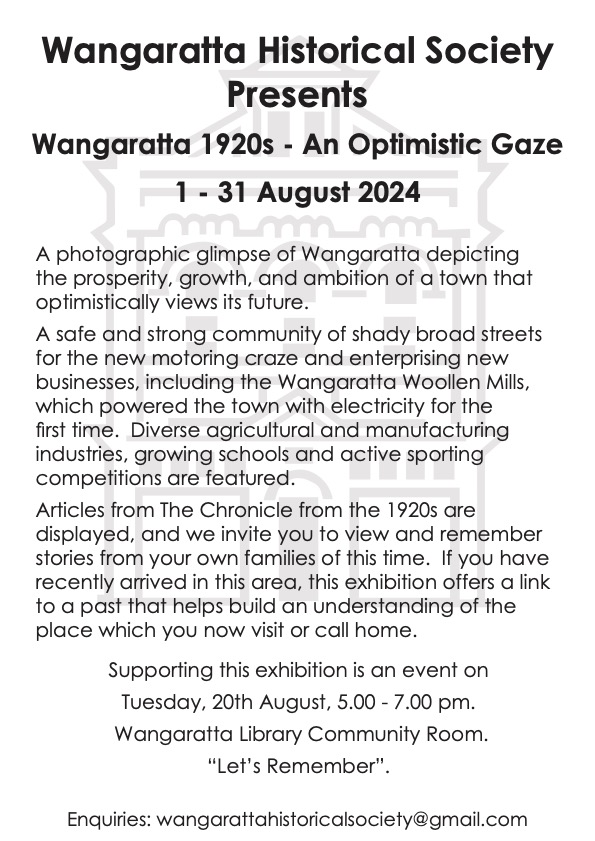
DAVID SALAU SPEAKS ABOUT ‘MAKE TANKERS TEN’ AT GENERAL MEMBERS MEETING 12TH FEBRUARY 2024
About 15 members welcomed David Salau at our General Members Meeting last night, Tuesday 12th February. David provided an insightful history into the 10 year collaboration that culminated in the writting and independent publishing of the book “Make Tankers Ten”. The book is an expansive collection of recollections, a poem, stories, images and documents that together provide a view into the history of brigades within the Wanagaratta Fire Brigades Group. David answered questions, and described the significance of the books title with its roots in comm’s (radio communication). This standardised communication call advised of the number of vehicles required to respond to a situation – and if the call from the incident controller was “make tankers ten” it was known to be an event of considerable magnitude.
Copies of the book are available for purchase at Edgars Newsagent, Garry Nash Real Estate and Milawa Post Office. David is happy to be contacted directly on 0428 387 582.
Wangaratta Historical Society is very grateful to the Wangaratta Fire Brigades Group for the donation of a copy of this treasure to our collection.
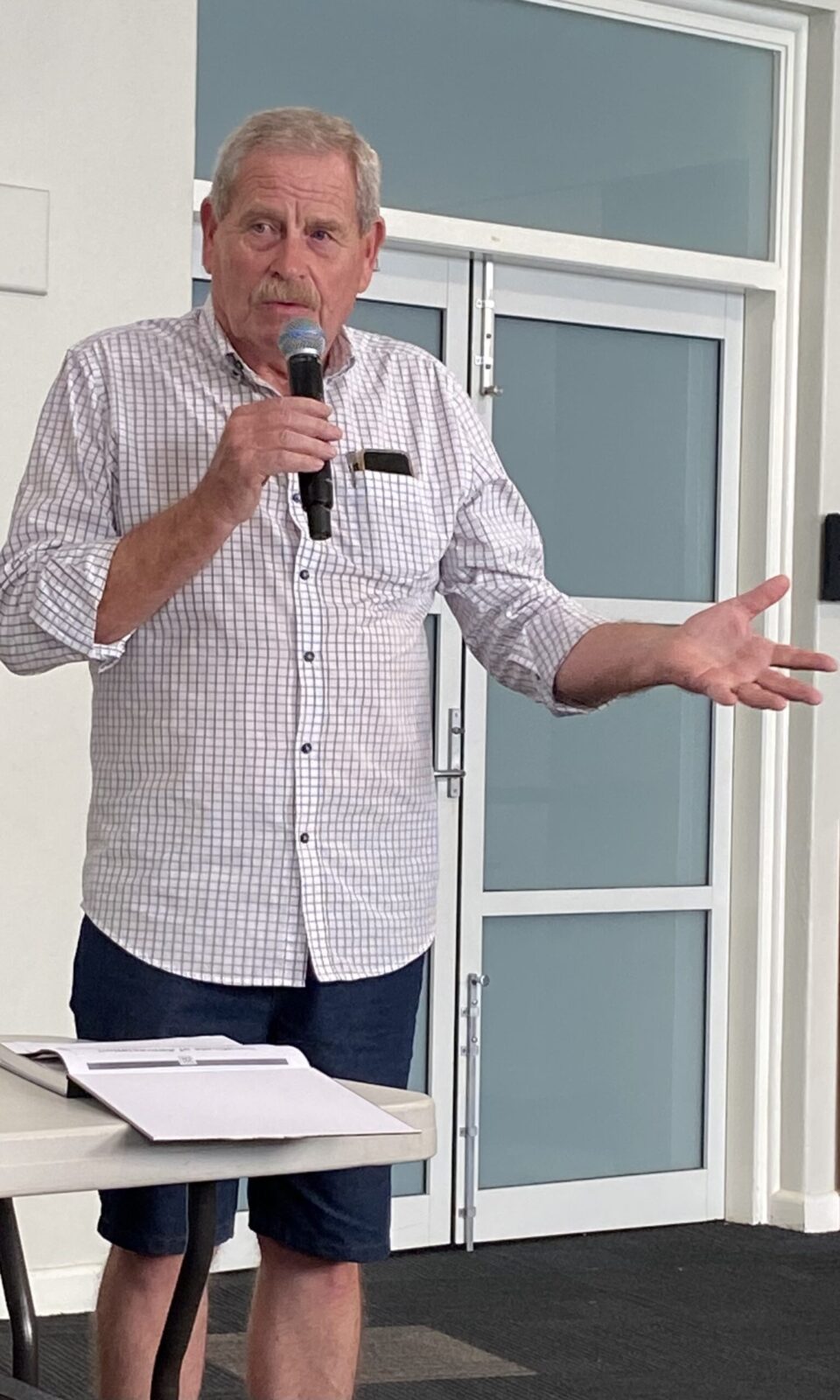
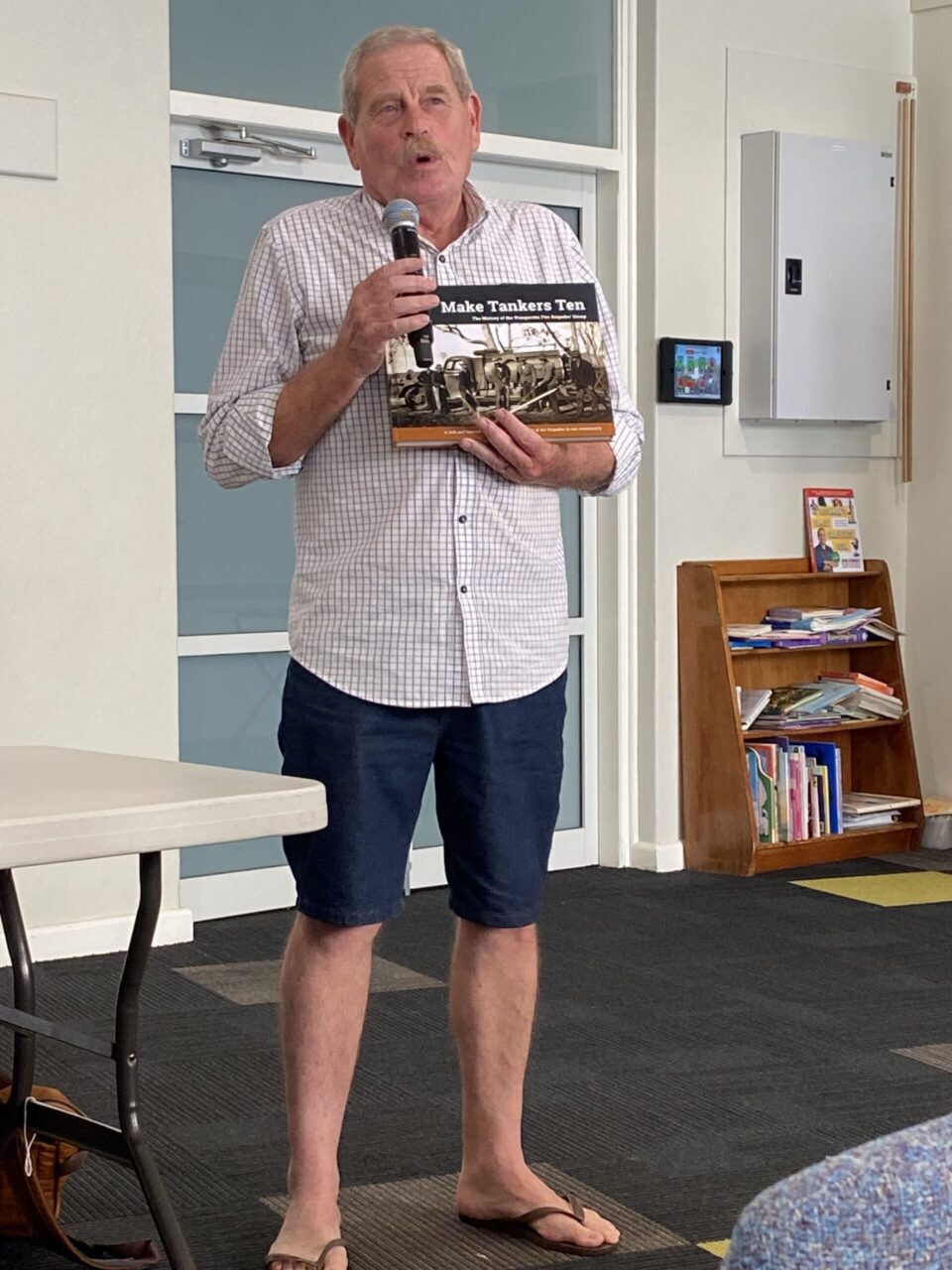
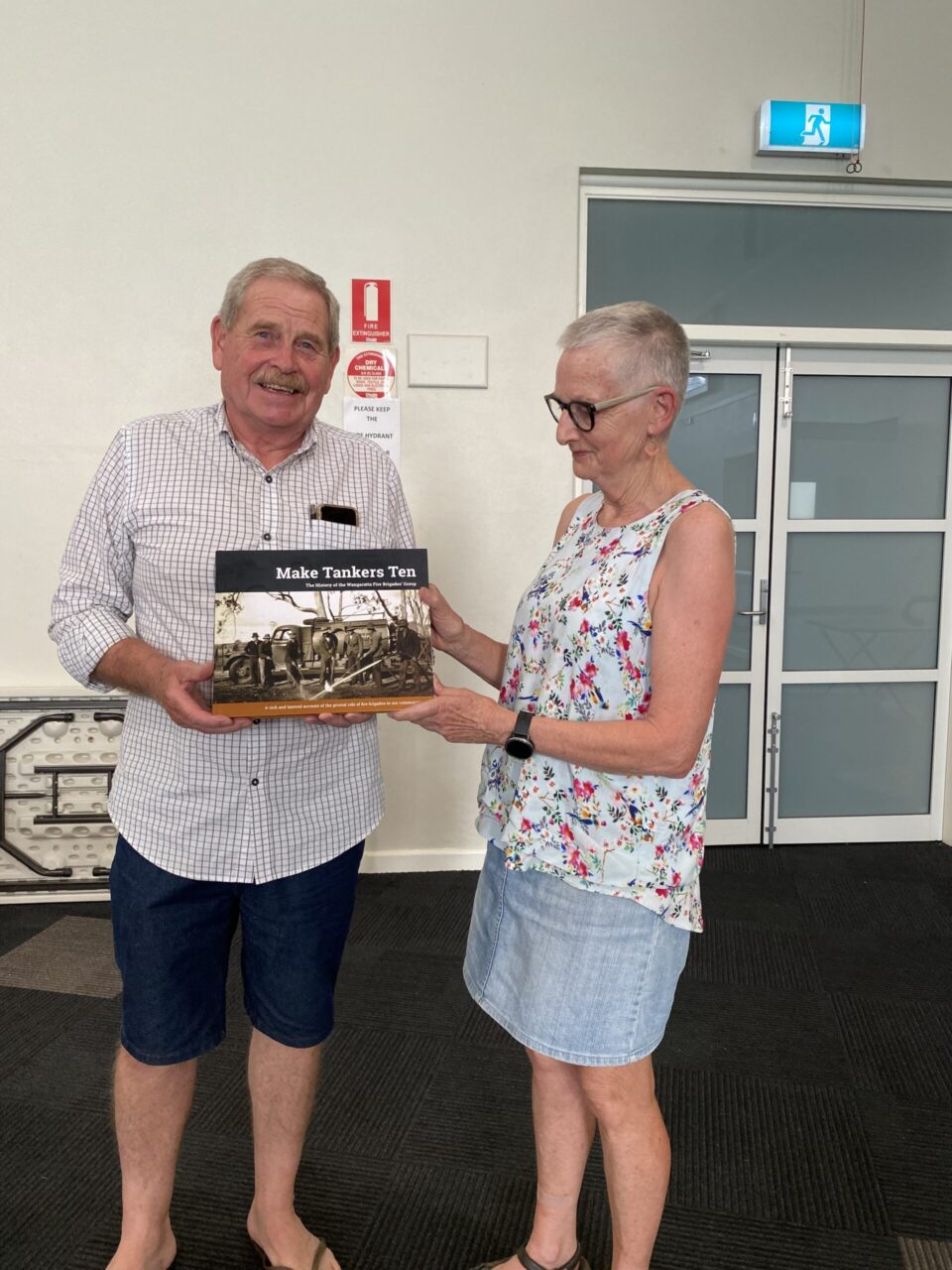
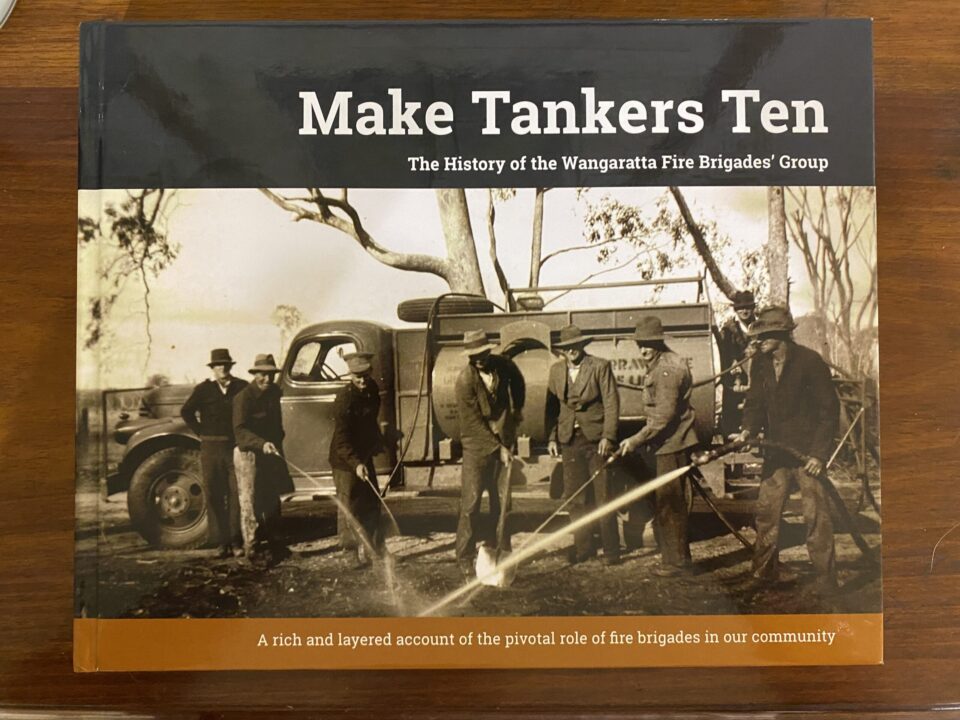
OPENING OF BAINZ GALLERY EXHIBITION 14TH DECEMBER 2023
On Thursday, December 14, 2023, about fifty people gathered to enjoy the exhibition of Old Wangaratta at the Bainz Gallery, Wangaratta Library. With food and drinks provided by our sponsor, Brown Brothers Winery, there was a lot of chatter, reminiscing, and enjoyment. The Wangaratta Uke Band played songs of “Old Wang,” and Andy Kimber provided information about some of the instruments on display, as used by the Wangaratta Tin Kan Band in the early last century. The exhibition continues until January 29th – so be sure to go and take a look.
WANGARATTA CHRONICLE 12th DECEMBER 2023
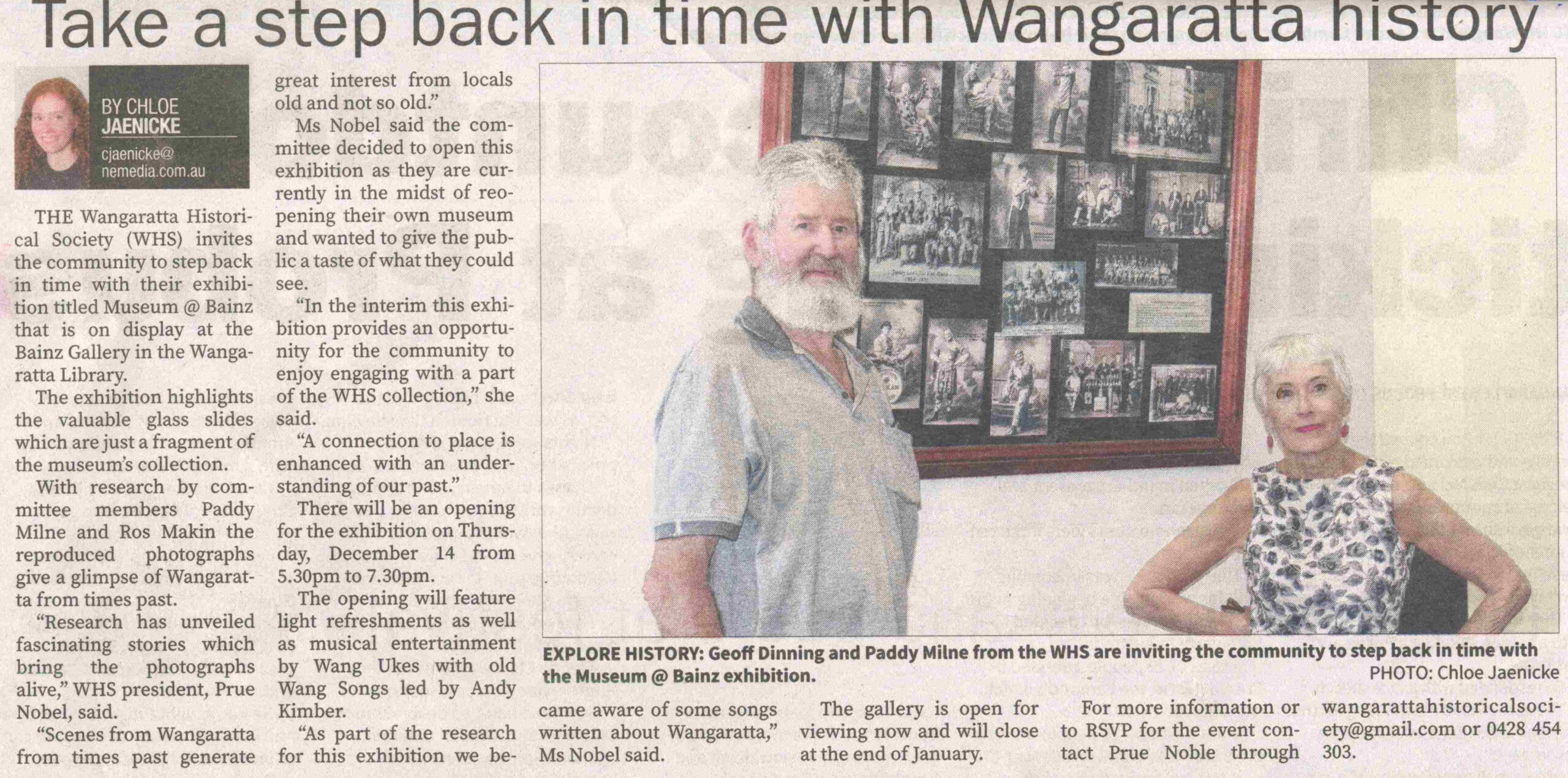
‘MUSEUM @ BAINZ’ HAS OPENED
A new exhibition has opened at the Bainz Gallery in the Wangaratta Library. The exhibition is from the museum’s collection. It has been curated by Paddy Milne, with support from members – Prue, Geoff, Wendy and Ian.
There is an open invitation to participate in a celebration next Thursday, December 14th. See the attached notice for details – the Committee hope to see many guests attend.
Thank you to our sponsors who will be supporting us on the night.
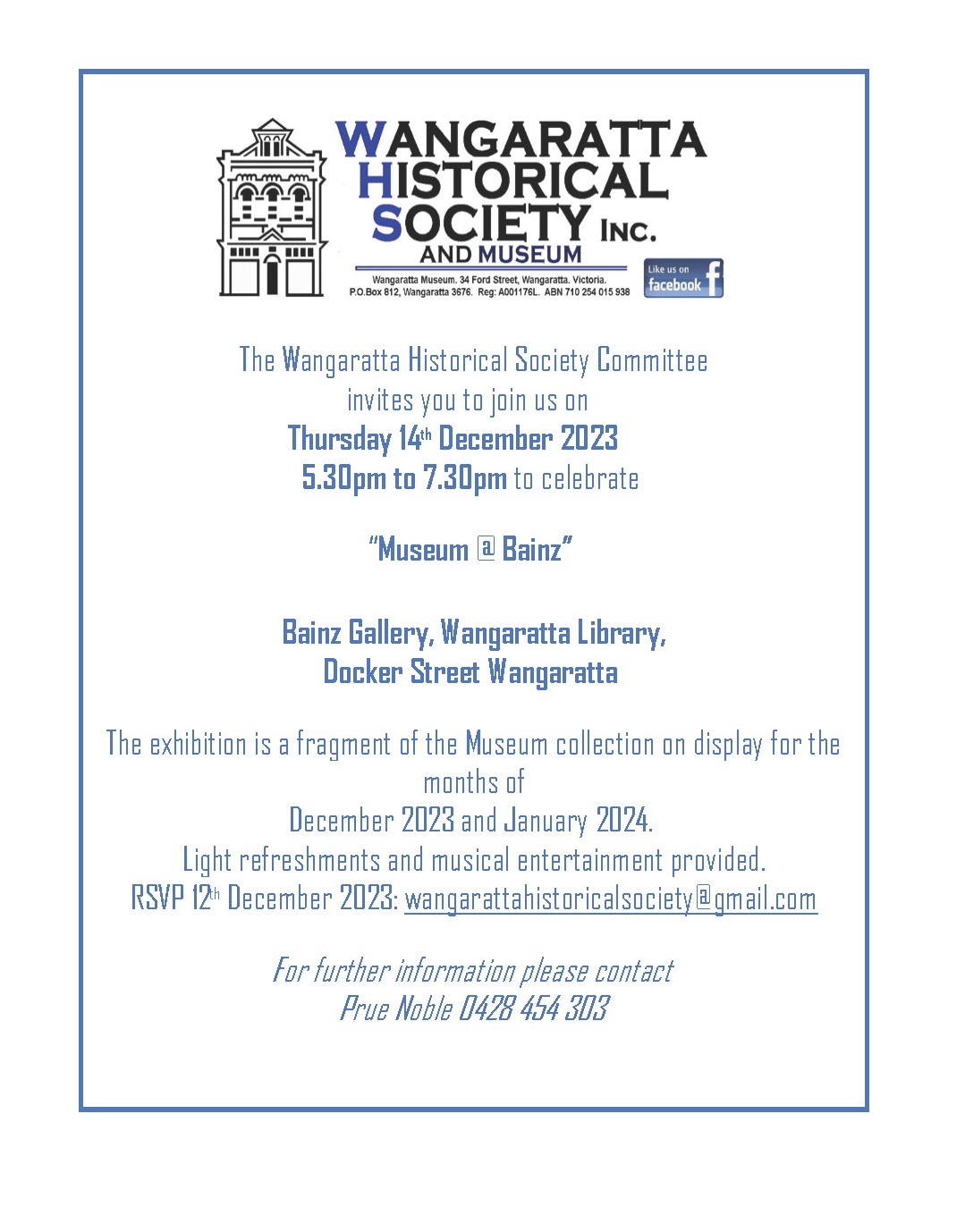
COUNCIL GRANT HELPS UPGRADE 2022
Our most sincere thanks to the Rural City of Wangaratta for awarding our Historical Society with a most generous grant of $5000. Whilst presented some time ago, the affects of Covid had denied us the opportunity to do anything except leave the grant safely secured in the bank.
With restrictions finally easing in 2022, a new committee was able to take up the baton mid-year and start to move forward with utilising these funds which ultimately enabled us to purchase (badly needed) new computer equipment, a new laser printer and get our new website up and running.
HONORED CITIZEN’S HISTORY COMES HOME 2022
WHS has been the grateful recipient of a most significant donation to our collection that being the incredible regalia of the late SIR JOHN BOWSER. (d.1936)
Sir John played a very significant part in our local history, involved in politics, including a term as Victorian Premier – as well as owner of The Wangaratta Chronicle newspaper. (Bowser Railway station was named in his honour).
He died in Wangaratta in 1936 and his Parliamentarian regalia was discovered stored away in the rafters of a shed in Mansfield some 70 years later. Thankfully the collection had been well sealed and his decendents have most generously donated this to WHS Museum.
Sir John been laid to rest here in Wangaratta Cemetery, the family felt it was most fitting for his affects return to the place he loved. We will look forward to creating a suitable public display later in 2023.
Our most sincere thanks to Greg Bowser and family for this most splendid donation.
Further reading ...
Sir John Bowser (1856-1936), politician and journalist, was born on 2 September 1856 at Islington, London, son of John Henry Bowser, Indian Army veteran, and his wife Marian, née Hunter. The family migrated to Victoria when John was 3 and settled at Bacchus Marsh, where he attended the local school. He gained his first experience of printing and journalism at 14, working for the Bacchus Marsh Express under Christopher Crisp. He had moved to printers McCarron, Bird & Co. of Melbourne, heading their poster section, when eye trouble necessitated a sea voyage to Scotland; there he worked for his uncle on the Dumfries and Galloway Standard. His sight improved; he studied journalism and English literature and gained his first political experience as a shorthand writer for the commission into the condition of the Skye crofters.
About 1880 Bowser returned to Victoria and settled at Wangaratta. In 1884 he became editor and part-owner, with George Maxwell, of the Wangaratta Chronicle. He travelled extensively in the district and established himself in community life; he later pioneered the local rifle and tennis clubs and the library committee, and acquired a small farm on the Ovens River.
In 1894 a meeting of residents at Milawa convinced him it was his duty to represent them in parliament. On 20 November he won the Wangaratta and Rutherglen seat in the Legislative Assembly by only thirteen votes, and his enthusiastic supporters celebrated by pulling his carriage through the streets; he held the seat more comfortably thereafter.
In parliament Bowser associated himself with the Kyabram movement and the rural groups which demanded economical government and balanced budgets. He had represented the Citizens’ Reform League in the 1902 election and supported (Sir) William Irvine’s ministry as a ‘country liberal’ to these ends.
In 1908 he was a leader of the ‘country’ faction of twenty-six members and held the public instruction portfolio briefly in Sir Thomas Bent’s cabinet from October to January 1909. Late in 1916 he founded a new parliamentary group, the Economy Party, as a response to the Peacock government’s accumulating deficits; during 1917 his group forced three supplementary budget statements, all reductions in expenditure.
Contemporaries, such as the Nationalist J. Hume Cook, defined it as ‘essentially a country party’. When Peacock raised railway freights and fares later in 1917, Bowser’s party challenged him in parliament, failing to defeat him by only two votes; in the election in November they campaigned as the ‘Liberals’ and defeated Peacock, who resigned.
Bowser then became premier, chief secretary and minister of labour. He was the rare politician who had never sought office for himself and had hoped his party would chose (Sir) John Mackey as premier; he later made no effort to retain the leadership. His ministry won the support of the Victorian Farmers’ Union and held office from 29 November 1917 to 21 March 1918. It was defeated unexpectedly on the issue of railway estimates by a combination of the Labor Party and the sixteen-strong ‘corner’ group of Nationalists led by Peacock and (Sir) Harry Lawson. A coalition was then formed between the Economy Party and the Nationalists, under Lawson; Bowser became, until 27 June 1919, chief secretary and minister of public health. He resigned after a dispute with Lawson over the sharing of cabinet posts between the parties.
In June 1920 Bowser joined the V.F.U. with some of his associates, and in that party he was influential at a time when it held the balance of power in parliament. On 30 April 1924 he was elected Speaker, on the combined votes of Labor and the V.F.U. When the Prendergast Labor government held office later that year, he occasionally used his casting vote to save it.
His most difficult task came in 1926, in the standing orders debate, when Labor members walked out in protest at his rulings. Within his own party he was working to heal the breach with the breakaway Country Progressives of A. A. Dunstan, which was fully achieved only in 1930.
Bowser was knighted in January 1927. He did not seek re-election as Speaker when his term ended in May and retired from politics in 1929. His services to his electorate included his work for the establishment of Wangaratta High and Technical schools. He had become sole owner of the Wangaratta Chronicle in 1905, and only relinquished full control, due to ill health, in the eighteen months before his death. He was a founder, and for many years president of the Country Press Co-operative Co. Ltd.
Noted for ‘an absurd shyness’ with women, Bowser had married late, on 11 October 1914, Frances Rogers, aged 51, who died in 1934. He died of cancer at his home on 10 June 1936 and was buried in Wangaratta cemetery with Presbyterian rites. Contemporary assessments of him referred to his courtesy, sensitivity, kindliness, sense of fair play, and lack of self-interest, rare in a political figure.
(From: The Australian Dictionary of Biography, Volume 7, 1979)
TIME SHALL NOT WEARY THEM
In November 2022, the WANGARATTA HISTORICAL SOCIETY was pleased to play a small part in the Centenary Celebrations for the Oxley War Memorial. Part of the day included displays in the historic Oxley Shire Hall, and the beautiful marble “Handcock” Mantle Clock donated to the WHS Museum in 1967 was transported back to Oxley for display on the day.
The clock is a deeply touching reminder of the sacrifices of War. It was presented to Harriet and Charles Handcock of Myrrhee on Anzac Day in 1917 by the Oxley Shire, as a heartfelt token of love, support and honour for the commitment of eight of their nine sons to the First World War. Two of their sons were killed during the war and three others came home with injuries. One young son and two girls were left home.
The clock was ultimately entrusted into the hands of the WHS for display as a sobering and touching memorial for all. Lest We Forget.
SAFEGUARDING OUR HOSPITALS HISTORY
There is no doubt that a Hospital plays a major role in the lifeblood of any community and our own Wangaratta Base Hospital has a rich history spanning well over a century of care and service.
With the pressure for space within the hospital buildings, an incredible cache of history was in desperate need of a new home and this truly amazing collection which spans the hospitals long history was recently offered to the Wangaratta Historical Society.
Despite our own very extreme space restrictions, we believed it was very much our duty to ensure that this collection was not lost and instead, preserved at all cost. After a March 2023 promotional display by North East Health in the WPAC foyer, the entire collection will be donated to the WHS and moved next door to our Museum.
This has necessitated the temporary consolidation of our existing displays to create floor-space to store, sort and then reorganise the entire Museum space to accommodate and better display all the many treasures we have been entrusted with. We sincerely thank N/E HEALTH for this incredibly generous and most significant donation.
